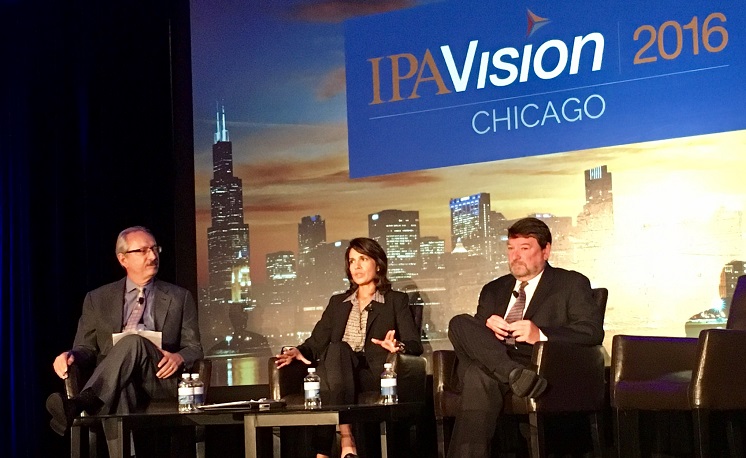As regulatory scrutiny mounts across the financial services industry, alternatives are seeing many changes in structure and products. And while this can seem daunting, during “The SEC and FINRA: Regulating Markets, Protecting Investors” panel, regulators emphasized that their roles are to make sure that capital being raised is done in a manner suitable for investors.
Sonia Barros, assistant director of the division of corporate finance for the Securities and Exchange Commission, said she values the dialogue with the industry generated during rule comment periods. This sentiment was echoed by Joe Price, senior vice president corporate financing/advertising regulator at the Financial Industry Regulatory Authority, who said that he wouldn’t spend so much time on policy if it wasn’t critically important.
“I’m a big fan of raising capital,” Price said. “I spend a lot of time thinking and working on how to improve the industry, comments in rulemaking and how regulations work so those who want to raise capital in a legitimate way can.”
Moderator Wayne Souza, general counsel and executive vice president, law at Walton Global Holdings, kicked off the session by asking the regulators what kept them up at night. Barros said that while the focus hadn’t changed in the last few years, it included new share classes, fee arrangements, sponsor support arrangements and disclosures, accounting policies and other financial disclosures.
And while the SEC oversees FINRA, their process for collaborating on rules and policies is “robust,” Barros said. Regulators have long-standing relationships that help them collaborate on the rulemaking process, taking a holistic approach to solving industry issues.
After some general comments on the industry, the panel examined several pending issues more in depth, including the accounting treatment of trail fees, regulatory notice 15-02 and selling commissions. Much time was spent examining the use of proceeds disclosure in filings, where many in the audience had questions.
For example, the SEC agreed with the industry that trail fees, or those paid for underwriting and advisory services throughout the life of an offering, can’t be estimated as a deduction in the use of proceeds table at the time of an offering. However, regulators are still looking for clear disclosures in footnotes so investors can see that it will be calculated in the future and what has been paid to date, Barros said.
In terms of sponsor support, the SEC is focused on whether or not companies need to include selling commissions, which hinges on whether or not they have a right to reimbursement. Currently, the SEC is asking companies not to adjust the amount available for investment because of sponsor support in order to be consistent across structures. The goal is consistency, Barros said.
Another question was around timing of the first net asset value disclosure and whether companies could delay slightly in order to file at a standard date, such as the close of a quarter. Price said that they’re looking for companies to get on and stay on a reasonable reporting timeline, so that this type of delay would still meet the goal of 15-02 requirements.
Regulators are committed to working closely with the industry to resolve any confusion and to keep investors’ best interests at the forefront of any new requirements.
